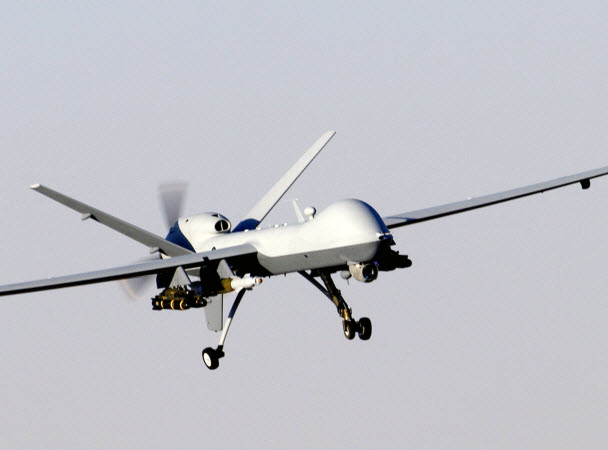There are no products in your shopping cart.
| 0 Items | £0.00 |

 AMERICAN intelligence experts have warned that Boko Haram might soon be able to launch drone attacks as it and other Islamic State of Iraq and Syria (Isis) affiliates have reached a threatening stage in their use of modified variants.
AMERICAN intelligence experts have warned that Boko Haram might soon be able to launch drone attacks as it and other Islamic State of Iraq and Syria (Isis) affiliates have reached a threatening stage in their use of modified variants.
According to the US-based Combating Terrorism Centre located in the United States Military Academy in West Point, New York, Isis has reached a threatening stage in the use of modified commercial drones as weapons. It added that faced with increasing loss of personnel and strongholds, Isis and operatives from its affiliates, including Boko Haram, are nearing advanced stages in turning civilian drones into deadly weapons of warfare.
In a report titled The Islamic State and Drones: Supply, Scale and Future Threats, the centre indicated that after recording some measure of success in deploying multitudes of drones for attacks in Syria and Iraq, Isis and its affiliates are fine-tuning the use of drones in other places. Citing the August 4, 2018 attack against Venezuelan president Nicolas Maduro, with two drones packed with explosives, the source stated that tactically, drone assassins can be cheap, deadly, easily within the reach of anyone, including dangerous elements and capable of causing incredible destruction without the direct use of personnel.
Nigerian Air Force (Naf) spokesman Air Commodore Ibikunle Daramola, said: “The military is already aware and working in concert with other nations in taking appropriate and decisive actions for the maintenance of Nigeria’s territorial integrity and protection of the lives of her citizens."
Although he refused to disclose classified details of the Naf's operational plans and strategies, he stated that while advances are being made in the operational use of drones against Boko Haram terrorists, other long-term plan for the deployment of technology to neutralise major security threats are being put in place under the chief of air staff Air Marshal Sadique Abubakar. Apparently, part of such long-term technological warfare plans include a programme at the Air Force Institute of Technology, Kaduna where a limited number of specially-screened intakes are now undertaking specialised studies and research in aeronautics, aerospace engineering and avionics at diploma and postgraduate levels.
US intelligence indicates that the terrorists have also been studying how to jam signals from American military drones. Isis is a group known for doing things a bit differently, for its capacity for innovation and for its many firsts.
In October 2016, the group used a bomb-laden drone to kill, two Kurdish Peshmerga soldiers who were investigating the device. Then in January 2017 Isis released a propaganda video that showed nearly a dozen examples of the group releasing munitions on its enemies from the air with a fair degree of accuracy via quadcopter drones it had modified.
Across Nigeria, drone enthusiasts, including hobbyists and film makers regularly explore innovative ways of using drone technology but on May 8, this year, the federal government announced an immediate ban on launching Remotely Piloted Aircraft or Unmanned Aerial Vehicles in its airspace without a permit from the Nigerian Civil Aviation Authority as well as the Office of the National Security Adviser. While many Nigerian drone hobbyists appear not to have taken government’s concerns with much seriousness, the military authorities are.